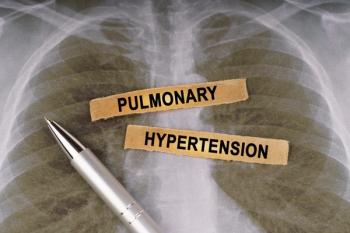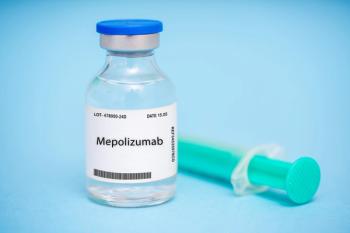
There was no association observed between lower income and increased fibrosis among New York City residents with metabolic dysfunction-associated steatohepatitis (MASH).

Hayden is an associate editor for The American Journal of Managed Care® (AJMC®). She joined the AJMC team in 2021, where she produces written and video content covering multiple disease states.
She has a BA in journalism & media studies from Rutgers University. You can connect with Hayden on LinkedIn.

There was no association observed between lower income and increased fibrosis among New York City residents with metabolic dysfunction-associated steatohepatitis (MASH).

Patients who see a cardiologist at least once a year are about 24% less likely to die in the following year.

Discontinuing the weight loss treatment before hitting the recommended maintenance dose contributes to low-value care despite provider follow-up and efforts to manage side effects, says Hamlet Gasoyan, PhD, Cleveland Clinic.


Pharmacists are being asked to not only manage medications and side effects but also be fiscally responsible for the whole institution and its trickle-down effect on costs, said David Awad, PharmD, BCOP, of Robert Wood Johnson University Hospital.

Merrill H. Stewart, MD, Ochsner Health, outlines the financial, logistical, and reimbursement barriers slowing the adoption of cardiac stress testing, but growing recognition of its long-term value could drive wider use.

Real-world cost barriers and insurance denials contribute to early discontinuation of injectable glucagon-like peptide-1 (GLP-1) receptor agonists, reducing their effectiveness for weight loss, explains Hamlet Gasoyan, PhD, Cleveland Clinic.

A global surge in rheumatoid arthritis with local hotspots highlights the need for targeted public health interventions.

The Global Liver Institute urges worldwide integration of liver health into diabetes and obesity care as steatotic liver disease surges.

Tocilizumab alone and in combination with methotrexate outperformed the latter drug in patients who did not adequately respond to conventional synthetic disease-modifying antirheumatic drugs.

Effective toxicity management in oncology requires pharmacists to document interventions clearly and collaborate closely with multidisciplinary teams, says David Awad, PharmD, BCOP.

Mansi Shah, MD, discusses the role of stem cell transplant in multiple myeloma (MM) and the logistical barriers to wider adoption of bispecific therapies.

The CDC’s Advisory Committee on Immunization Practices was expected to meet later in June to issue recommendations for use.

Patients who remained on treatment, especially at higher doses or on tirzepatide, were more likely to achieve clinically meaningful weight loss and improved glycemic control.

Merrill H. Stewart, MD, Ochsner Health, explains misconceptions about stents and bypass surgery and highlights when cardiac positron emission tomography (PET) stress testing is most appropriate.

David Awad, PharmD, BCOP, says pharmacists play a growing role in managing access, safety, and toxicity for these therapies, ensuring treatments are appropriate and sustainable in real-world oncology practice.

According to Merrill H. Stewart, MD, Ochsner Health, the test can more accurately identify high-risk patients while helping others avoid unnecessary invasive procedures.

Findings offer a potential basis for sex-specific dietary guidelines for metabolic dysfunction–associated steatotic liver disease (MASLD), as this relationship was significant for men but not women.

Switching patients with chronic lymphocytic leukemia (CLL) from ibrutinib to zanubrutinib has led to fewer cardiac adverse effects and a reduced workload for Mohit Narang, MD, managing partner at Maryland Oncology Hematology.

The most prevalent types are prostate cancer among men and breast cancer among women.

The pulmonary arterial hypertension (PAH) drug preserved its safety profile at 2.5 years of treatment and continued to reduce mortality compared with placebo.

These populations are still included in the CDC’s COVID-19 immunization schedules despite the HHS secretary saying the shots are no longer recommended for them.

Pediatric research explored environmental interventions for bronchiolitis, heart function in children born preterm, and a quality initiative that improved rounding autonomy for pediatric fellows.

A pharmaceutical-grade cannabidiol (CBD) product was shown to be safe in high-risk patients hospitalized with COVID-19, with no increased rate of cardiac side effects compared with placebo.

New findings from the MATINEE and COPD-HELP studies suggest mepolizumab could reduce exacerbations and improve quality of life in patients with eosinophilic chronic obstructive pulmonary disease (COPD).

Nerandomilast significantly slowed lung function decline and reduced mortality in patients with progressive pulmonary fibrosis (PPF), with consistent efficacy regardless of background antifibrotic therapy.

Researchers are working to redefine diagnosis and treatment with data-driven tools aimed at identifying patients earlier and guiding precision care.

The latest results from the phase 3 FIBRONEER-IPF trial showed consistent benefit of nerandomilast in patients with idiopathic pulmonary fibrosis (IPF) whether or not they were receiving background antifibrotic therapy.

Research presented at the American Thoracic Society (ATS) 2025 International Conference used FDA-approved tools to see how sleep can impact other parts of recovery for patients in the intensive care unit (ICU).

Solutions depend on listening to individuals with lived experience, rebuilding trust, and recognizing the humanity of every patient, experts say.

259 Prospect Plains Rd, Bldg H
Cranbury, NJ 08512
© 2025 MJH Life Sciences®
All rights reserved.
